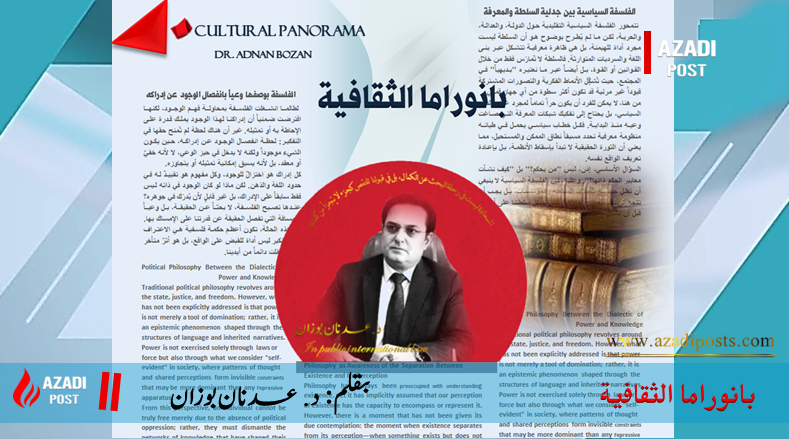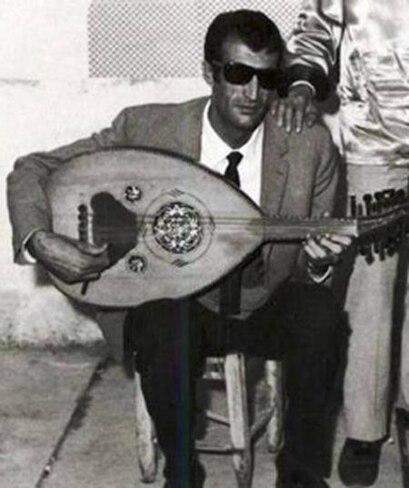Mohammad Sheikho: The Legend of Kurdish Melody and the Poetic Soul of Revolution
- Super User
- Cultural Panorama
- Hits: 3697

By: Dr. Adnan Bozan
In the depths of Kurdish history, echoes of rare names resonate—figures who carved their presence into the heart of the nation. Among them stands the artist and singer Mohammad Sheikho, whose voice was not merely an instrument of melody but a pulsating spirit carrying the pains and dreams of his people. Born on March 9, 1948, in Khajuki, a village in the rural outskirts of Qamishli, Syria,
Mohammad Sheikho—nicknamed Bavê Felek—would later become an eternal icon of Kurdish nationalist music.
-Early Life and Musical Beginnings
Mohammad Sheikho grew up in a simple rural environment, attending primary school in his village before continuing his secondary education in Qamishli. Life was not easy for him; at an early age, he was forced to work in agriculture to help support his family against the hardships of life. Despite  these struggles, the rural landscape and the natural surroundings played a significant role in shaping his artistic identity, inspiring the rhythms and melodies that would later define his music.
these struggles, the rural landscape and the natural surroundings played a significant role in shaping his artistic identity, inspiring the rhythms and melodies that would later define his music.
During this period, music gradually infiltrated his soul, becoming a weapon through which he expressed his emotions. In Kharbi Karma, he met Khalil Yazidi, Hussein Tofi, and Halim Hasso, prominent artists who offered him substantial artistic support. Accompanying them in their performances and musical gatherings, he transformed from an amateur into a promising artist carrying the voice of his people's struggle.
-Beirut: The Turning Point in His Musical Career
In 1970, Mohammad Sheikho traveled to Beirut to study music, immersing himself in a vibrant artistic scene. At that time, Beirut was a hub for great musicians, and by joining the Kurdish Art Committee in Lebanon, he found a platform to showcase his talent. There, he performed alongside Kurdish diaspora artists in concerts and festivals aimed at supporting the Kurdish cause.
The year 1972 marked a historic milestone for Mohammad Sheikho when he performed at the prestigious Rivoli Cinema in Beirut in front of prominent political figures, including former Lebanese Prime Minister Saeb Salam. His voice carried the weight of his homeland’s struggles, and he soon became a member of the Lebanese Artists’ Union, where he had the chance to meet legendary Arabic musicians such as Fairuz, Wadih El Safi, Nasri Shamseddine, and Samira Tawfiq.
-Journey to Baghdad and Iraqi Kurdistan
As his fame grew, Mohammad Sheikho traveled to Baghdad in 1972, where he recorded a collection of songs at Baghdad Radio's Kurdish section. He returned in 1973, and his songs reached the ears of Kurds across Iraq through Baghdad and Kirkuk Radio Stations. His music was not just entertainment—it became the voice of revolution. During this time, he met Kurdish leader Mulla Mustafa Barzani, who honored him and presented him with the Kurdistan flag in recognition of his national contributions.
-Exile and Music in Iranian Kurdistan
As political pressure mounted in Syria, Mohammad Sheikho was forced to flee to Iraqi Kurdistan, where he joined the Peshmerga resistance after the 1975 Algiers Agreement. However, circumstances led him to take refuge in Iranian Kurdistan, settling in Rabt Camp. During this time, he released his iconic album "Ey Felek", a masterpiece that captured the suffering of his people with raw emotion and deep sorrow.
In Iran, he learned Persian and taught Arabic, but he could not escape the enchantment of love. He fell for Nesrin Hussein Malak, the daughter of a prominent Peshmerga leader. Their love story was not easy, but it eventually led to marriage, blessing them with four children: Felek, Ibrahim, Pirozk, and Bexs, the latter of whom tragically passed away later.
-The Final Return and Silent Departure
After the Iranian Revolution, Mohammad Sheikho faced political accusations that nearly cost him his life. He survived and returned to Qamishli in 1983, where he formed a musical band and continued recording songs with a strong nationalistic tone. His activism led to continued persecution by Syrian authorities, and in 1987, his Felek Studio was shut down, placing him under strict surveillance.
In 1989, Mohammad Sheikho was struck by illness and was admitted to the National Hospital in Qamishli, where he passed away on March 9. His funeral was a grand affair, attended by thousands who mourned their beloved artist—the voice of their struggle. His words, "When I die, O living ones, do not bury me like the others. Awaken me every March," were not just lyrics; they were the testament of an artist whose voice refused to fade with time.
-A Timeless Legacy
Mohammad Sheikho was more than a singer—he was the artistic conscience of the Kurdish people, his songs carrying their revolution, dreams, and suffering. Even after his passing, his voice continues to echo in the hearts of Kurds everywhere, a testament to an unbroken struggle and an undying dream.
-A Tribute to Mohammad Sheikho
On the anniversary of your departure, O voice that carried the pains and dreams of your people, we stand before your memory with a sorrow tinged with pride. You were more than an artist—you were a spirit singing for freedom, homeland, and love that never dies. Your voice, which shattered the silence of oppression, still lives on in our hearts, embracing the mountains and valleys and soaring with every breeze that touches the land you loved so deeply.
Mohammad Sheikho, O Kurdish bird that soared in the purest sky of art, you sang as if weaving melodies from pain and shaping hope into an unquenchable flame. You left this world in body, but you remain a light in the hearts of those who cherished your music and upheld your cause.
Rest in eternal peace, O artist of the people and the struggle. You have left behind an indelible legacy and a voice that will never be forgotten.


